The pregnancy begins with a miraculous event called implantation, where a fertilized egg attaches itself to the uterine wall. It’s a critical phase that sets the stage for a healthy pregnancy. While many factors contribute to successful implantation, one aspect that often goes overlooked is our diet. The foods we eat are pivotal in creating a fertile environment for the embryo to thrive.
In this guide, we’ll explore the fascinating world of implantation and how certain nutrients and foods can boost your chances of a successful pregnancy. From vitamins like folic acid and vitamin D to essential minerals like iron and a host of fertility-friendly foods, we’ll uncover the secrets of nurturing your body during this crucial time. Whether you’re actively trying to conceive or want to learn more about the science of pregnancy, this information will empower you to make informed choices about your diet and overall health.
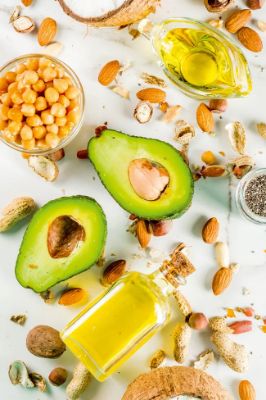
Nutrients Essential for Implantation
In the complex choreography of conception, certain nutrients emerge as stars, orchestrating the conditions necessary for a fertilized egg to establish itself within the womb firmly. These essential nutrients, including folic acid, omega-3 fatty acids, vitamin D, iron, antioxidants, and protein, are the focus of our exploration as we delve into their roles during the crucial phase of implantation.
Folic Acid
Folic acid, a synthetic form of folate (a B-vitamin), is essential during the early stages of pregnancy, including implantation. It is crucial for cell division and growth in DNA synthesis and repair. The fertilized egg starts rapidly dividing and forming the placenta and embryo during implantation. Folic acid helps ensure this process occurs smoothly, reducing the risk of neural tube defects and promoting a healthy pregnancy. It’s found in leafy greens, fortified cereals, legumes, and citrus fruits.
Omega-3 Fatty Acids
Omega-3 fatty acids, particularly EPA (eicosapentaenoic acid) and DHA (docosahexaenoic acid), are polyunsaturated fats known for their anti-inflammatory properties. In the context of implantation, these fatty acids help reduce inflammation in the uterine lining, making it more receptive to the embryo. They also improve blood flow to the reproductive organs, ensuring the developing embryo receives adequate nutrients and oxygen. Fatty fish like salmon, walnuts, flaxseeds, and chia seeds are excellent sources of omega-3s.
Vitamin D
Vitamin D is essential for calcium absorption and maintaining a healthy uterus. Calcium is crucial for muscle function, including the uterine muscles. Adequate vitamin D levels ensure the uterus is optimal for the embryo to attach. It also plays a role in hormone regulation, vital for the menstrual cycle and successful implantation. Sources of vitamin D include sunlight exposure, fatty fish, fortified dairy products, and supplements if necessary.
Iron
Iron is necessary for transporting oxygen to cells, tissues, and organs, including the uterus and developing embryo. It ensures the embryo receives sufficient oxygen and nutrients for healthy growth and development during implantation. Iron deficiency can lead to anemia, which may hinder the implantation process. Iron-rich foods include lean meats, poultry, beans, lentils, spinach, and fortified cereals.
Antioxidants
Antioxidants such as vitamins C and E and other compounds like selenium and zinc protect the developing embryo during implantation. They neutralize harmful free radicals and reduce oxidative stress, which can damage the embryo and impair implantation. Including foods rich in antioxidants, such as berries, nuts, leafy greens, and whole grains, can help create a more favorable environment for successful implantation.
Protein
Protein is essential for tissue repair and building. In the context of implantation, it helps maintain the uterine lining and supports overall uterine health. A well-nourished uterine lining is more receptive to the embryo’s attachment. Including lean meats, poultry, fish, dairy products, legumes, and tofu can provide the necessary protein for a healthy uterine environment during implantation.
20 Foods That Help Implantation
| Food | Nutritional Value |
| Spinach | Rich in folate for cell division and DNA synthesis. |
| Avocado | Provides healthy fats and vitamin E to reduce inflammation. |
| Salmon | Source of omega-3 fatty acids to improve blood flow. |
| Berries (Blueberries, Strawberries) | Packed with antioxidants to protect the embryo. |
| Eggs | Contains essential proteins and choline for a healthy uterine lining. |
| Broccoli | Rich in folate and fiber, promoting a fertile environment. |
| Almonds | Provides vitamin E and healthy fats for embryo health. |
| Beans and Lentils | Offers a combination of protein and fiber for nurturing the environment. |
| Greek Yogurt | Source of protein and probiotics for hormonal balance. |
| Chia Seeds | High in omega-3s and fiber, reducing inflammation and promoting uterine health. |
| Oranges | Provides vitamin C for hormone regulation and a healthy uterine environment. |
| Kale | Rich in folate and antioxidants to support cell division and embryo protection. |
| Walnuts | Contains omega-3 fatty acids and antioxidants, reducing inflammation and improving blood flow. |
| Tofu | Offers plant-based protein and iron for a well-nourished uterine lining. |
| Mackerel | Provides omega-3s to reduce inflammation and improve blood circulation. |
| Pumpkin Seeds | Rich in zinc to support hormone regulation and reproductive health. |
| Sweet Potatoes | Supplies beta-carotene for embryo development. |
| Lean Beef | Source of iron and protein to support a healthy uterine environment. |
| Quinoa | Balanced mix of protein and fiber for reproductive health. |
| Sunflower Seeds | Offers vitamin E and selenium, reducing oxidative stress and supporting implantation. |
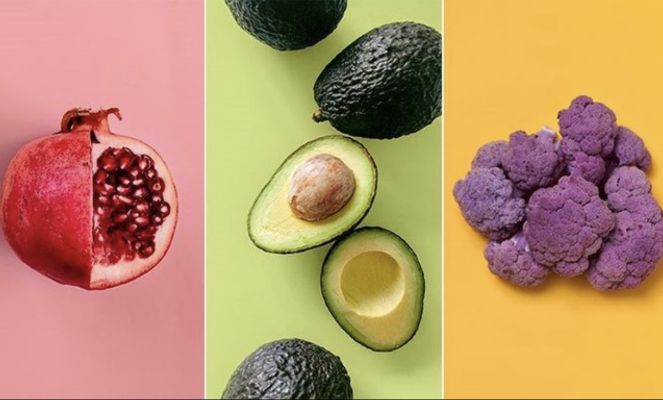
There is another slot of 20 foods that are enriched of nutrients for implantation.
| Food | Nutritional Value |
| Asparagus | Rich in folate, essential for cell division during implantation. |
| Citrus Fruits (Grapefruits, Lemons) | High in vitamin C for hormone regulation and uterine health. |
| Black Beans | Provides protein and folate to support a healthy reproductive system. |
| Brussels Sprouts | Rich in folate and antioxidants, promoting a fertile environment. |
| Cauliflower | Contains folate and vitamin C, essential for implantation. |
| Papaya | Provides vitamin A, C, and folate for embryo development and hormonal balance. |
| Cottage Cheese | Source of protein and calcium, supporting uterine health. |
| Oysters | Rich in zinc, crucial for hormone regulation and reproductive health. |
| Kiwi | Packed with vitamin C and antioxidants for embryo protection. |
| Ground Flaxseeds | High in omega-3s and fiber, reducing inflammation and supporting uterine health. |
| Lean Turkey | Source of lean protein, aiding in a well-nourished uterine lining. |
| Swiss Chard | Rich in folate and antioxidants, supporting cell division and embryo protection. |
| Shrimp | Provides protein and iodine, essential for hormonal balance. |
| Pomegranate | High in antioxidants, reducing oxidative stress during implantation. |
| Whole Grains (Oats, Brown Rice) | Rich in fiber, supporting a healthy reproductive system. |
| Red Bell Peppers | Contains vitamin C and antioxidants for uterine health. |
| Lean Pork | Source of iron and protein, vital for a healthy uterine environment. |
| Eggs (specifically, egg yolks) | Provides choline, essential for embryo development. |
| Artichokes | Rich in fiber and antioxidants, promoting a fertile environment. |
| Bluefish | High in omega-3 fatty acids, improving blood flow for implantation. |
Recipes Of Foods That Help Implantation
Here are a few recipes that incorporate foods known to support implantation, along with some specifications:
Spinach and Avocado Breakfast Smoothie
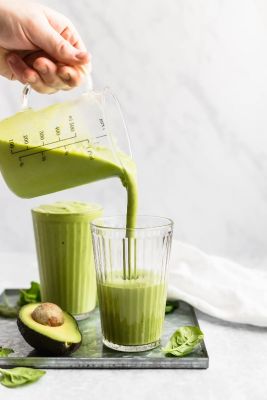
- Ingredients:
- 1 cup spinach leaves
- 1 ripe avocado
- 1 banana
- 1/2 cup Greek yogurt
- 1 tablespoon honey (optional)
- 1/2 cup almond milk (or any milk of your choice)
- Instructions:
- Blend all the ingredients until smooth.
- Add more milk if needed to achieve your desired consistency.
- Enjoy a nutrient-packed breakfast.
Grilled Salmon with Asparagus
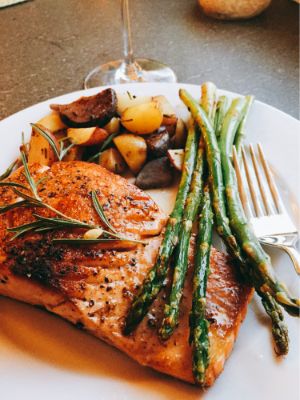
- Ingredients:
- 2 salmon fillets
- 1 bunch of asparagus
- Olive oil
- Lemon juice
- Salt and pepper to taste
- Instructions:
- Preheat the grill.
- Drizzle olive oil and lemon juice over the salmon and asparagus. Season with salt and pepper.
- Grill the salmon for about 4-5 minutes per side, until it flakes easily with a fork.
- Grill the asparagus for 3-4 minutes, turning occasionally.
- Serve the grilled salmon and asparagus together as a healthy and nutritious meal.
Berry and Greek Yogurt Parfait
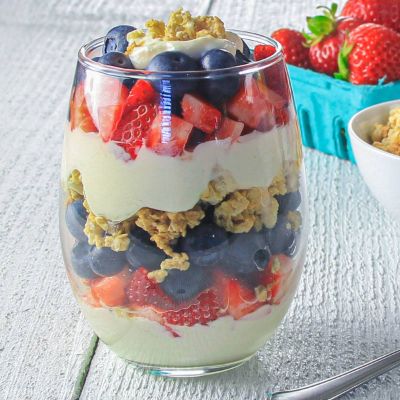
- Ingredients:
- 1 cup Greek yogurt
- 1/2 cup mixed berries (blueberries, strawberries, raspberries)
- 1/4 cup granola
- 1 tablespoon honey
- Instructions:
- In a glass, layer Greek yogurt, mixed berries, and granola.
- Drizzle honey on top.
- Repeat the layers as desired.
- Serve as a delicious and nutritious dessert or snack.
Lentil and Vegetable Stir-Fry
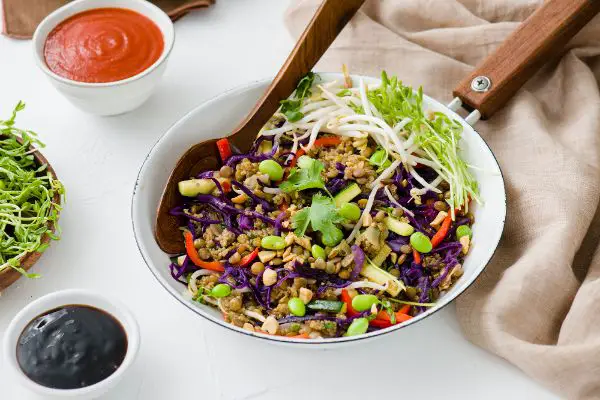
- Ingredients:
- 1 cup cooked lentils
- Assorted vegetables (broccoli, bell peppers, carrots, etc.)
- Olive oil
- Soy sauce (low-sodium)
- Garlic and ginger (minced)
- Sesame seeds
- Instructions:
- Heat olive oil in a pan and sauté minced garlic and ginger until fragrant.
- Add assorted vegetables and stir-fry until they’re slightly tender.
- Add cooked lentils and a splash of soy sauce.
- Continue to cook until everything is heated through.
- Serve the stir-fry with a sprinkle of sesame seeds.
Quinoa and Chickpea Salad
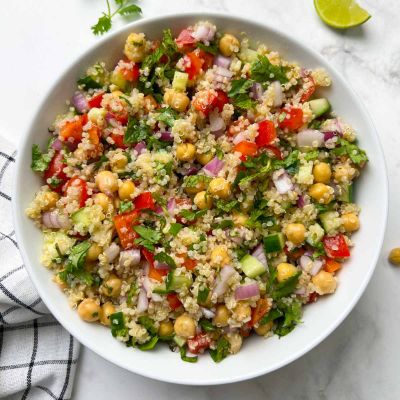
- Ingredients:
- 1 cup cooked quinoa
- 1 can chickpeas (drained and rinsed)
- Cherry tomatoes (halved)
- Cucumber (diced)
- Red onion (finely chopped)
- Fresh parsley (chopped)
- Olive oil
- Lemon juice
- Salt and pepper to taste
- Instructions:
- Combine quinoa, chickpeas, cherry tomatoes, cucumber, red onion, and parsley in a large bowl.
- Drizzle with olive oil and lemon juice, and season with salt and pepper.
- Toss everything together until well mixed.
- Serve chilled as a hearty and nutritious salad.
Baked Sweet Potato Fries
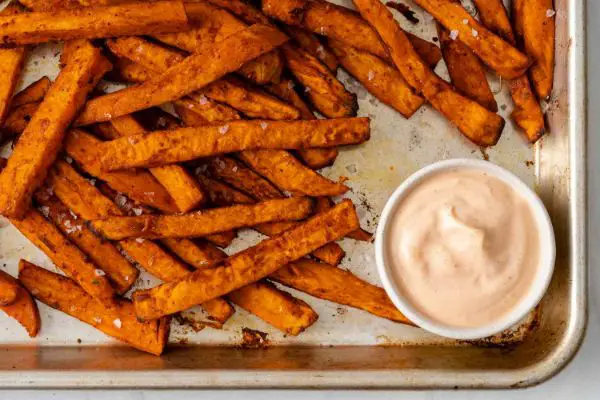
- Ingredients:
- Sweet potatoes (peeled and cut into fries)
- Olive oil
- Paprika
- Garlic powder
- Salt and pepper to taste
- Instructions:
- Preheat your oven to 425°F (220°C).
- Toss the sweet potato fries with olive oil and seasonings in a large bowl.
- Arrange the fries on a baking sheet in a single layer.
- Bake for about 25-30 minutes, turning them halfway through until they are crispy and golden.
- Enjoy as a healthy side dish.
Berry Nut Butter Toast
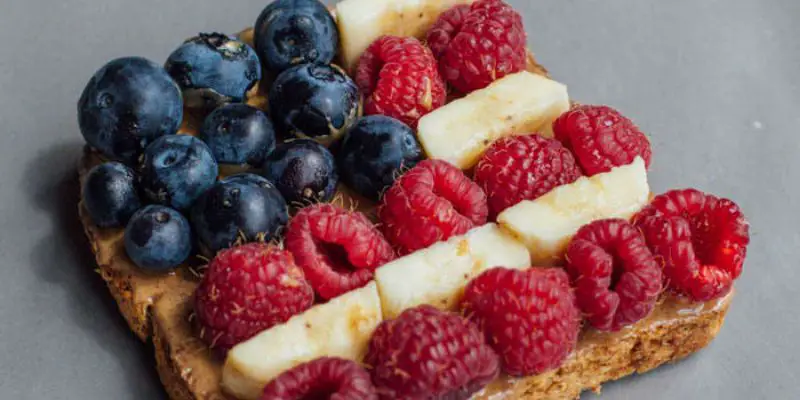
- Ingredients:
- Whole-grain bread slices
- Nut butter (almond, peanut, or cashew)
- Mixed berries (blueberries, strawberries)
- Honey
- Instructions:
- Toast the whole-grain bread slices.
- Spread a layer of nut butter on each slice.
- Top with mixed berries and drizzle honey over them.
- Serve as a nutrient-rich and satisfying breakfast or snack.
Citrus and Spinach Salad
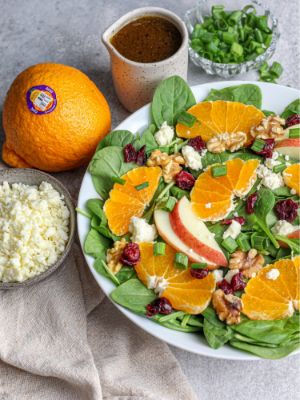
- Ingredients:
- Baby spinach leaves
- Orange segments
- Grapefruit segments
- Toasted almonds
- Red onion (thinly sliced)
- Olive oil
- Balsamic vinegar
- Salt and pepper to taste
- Instructions:
- In a salad bowl, combine baby spinach, orange segments, grapefruit segments, toasted almonds, and red onion.
- Drizzle with olive oil and balsamic vinegar. Season with salt and pepper.
- Toss gently to mix the flavors.
- Serve as a refreshing and vitamin-rich salad.
Implantation Foods To Avoid
Here’s a chart listing foods to avoid during implantation and why you should limit or exclude them:
| Food to Avoid | Reasons to Avoid |
| High Mercury Fish | High levels of mercury can harm the developing embryo. |
| Processed Meats | High saturated fats and preservatives can affect fertility. |
| Trans Fats | Trans fats can lead to inflammation and hormonal imbalances. |
| Caffeine | Excessive caffeine intake may reduce fertility. |
| Alcohol | Alcohol can disrupt hormonal balance and harm the fetus. |
| Sugary Foods | High sugar intake can lead to inflammation and insulin resistance. |
| Excessive Soy | Phytoestrogens in soy may affect hormone regulation. |
| High-Sugar Beverages | Sugary drinks can contribute to insulin resistance. |
| Artificial Sweeteners | Some studies suggest potential adverse effects on fertility. |
| Highly Processed Foods | Contain additives and preservatives linked to fertility issues. |
Conclusion
We’ve explored vital nutrients and foods for successful implantation. These choices set the stage for a healthy pregnancy. Avoiding fertility-hindering foods is equally important. Make informed choices and maintain a nutritious diet throughout pregnancy. Seek guidance from healthcare professionals for the best start to your family’s journey.
Best wishes on this exciting path ahead.
Thanks for reading and if you are a foodie make sure you check out the Dutch bros menu for the latest information about their prices.
